I grew up fishing and hunting in rural Colorado. My brother and I would fish all day for cutthroat and rainbow trout in the streams and lakes, long beyond when I’m sure my dad was ready to head home. I remember the sheer joy I felt as I unwrapped my first gun—a beautiful little .410 shotgun—and learned to shoot it, first at cans and then eventually upland birds. We had our favorite campsites nestled in the quaking aspens that we returned to year after year, where we’d chase chipmunks around with small bows. And I can still recall my excitement as I unwrapped my first compound bow, racing to practice before deer and elk season.
In 2008, I returned to western Colorado and went back to some of my favorite fishing holes and hunting campsites. And what I found astounded me. They were desolate. The aspen forests were dying. And it wasn’t just the aspens. You couldn’t drive a single mountain pass in Colorado without seeing dull gray mountainsides of dead trees.
What the hell is happening, I wondered. So I started digging.
Like following a windy game trail, the path ultimately led me to a career as a scientist. I’m now a biology professor at the University of Utah. I’ve published more than 50 peer-reviewed scientific studies on climate change, which have been covered in Time, USA Today, Scientific American, and contributed to major national and international scientific reports.
The more I’ve learned, the more worried I’ve become. From the forests of the West to the pages of scientific studies, I’d like to share with you my journey, because I believe that the future of our hunting and fishing depends on it. So here it is: the inside scoop, the report from the frontlines.
No Debate
There’s an incredibly strong scientific consensus that humans have caused the vast majority of climate change, or global warming, in the past 50 years or so. This one you’ve probably heard before. Only, this time, you’re hearing it from the proverbial horse's mouth. Several years back, I was curious just how many scientists agreed that humans are causing global warming. To answer that question, I led a study which found that 97-98% of climate scientists agree that humans are causing climate change. Several independent studies have since found the exact same levels of agreement.
If you found a suspicious lump on your body and you visited thousands of cancer doctors, who ran tens of thousands of tests, and 97% told you that you had cancer, you’d be pretty worried, wouldn’t you? This same sound reasoning applies to climate change. There is essentially no debate among scientists on whether humans are causing the rapid global warming of the last several decades and that’s because the evidence is overwhelming: thousands of peer-reviewed studies drawing on tens of thousands of datasets from around the world. Few sportsmen are surprised to learn this because we’ve been out on the rivers, lakes and forests and have seen the changes happening with our own eyes.
Real, Negative Impacts
The impacts of climate change will be harmful to society and wildlife. Remember those mysterious dying forests in Colorado? Our research has started to figure out what’s going on and it has the fingerprints of climate change all over it.
We performed what is the equivalent of autopsies on hundreds of dead and dying trees in Colorado. Doing so involves thousands of hours in the forests and in the lab, thousands of shotgun shells (shotgun shells, you ask? Well, a 20 gauge with birdshot is the best way to collect leaves from tops of really tall trees, and as a by-product has greatly upped my skeet game), and waking up even earlier in the morning than you have to get to that faraway but amazing hunting spot.
We’ve learned two important things from this research. First, trees, like humans, often die from “heart attacks” during stressful times. Trees don’t have hearts, but tiny air bubbles can block their water “veins” during drought and kill them. With the right microphone, you can actually hear a tree dying during a severe drought. Second, hotter temperatures are more stressful to plants and animals—making them less tolerant to drought—which is why drought in the early 2000s killed millions of trees in the Rocky Mountains, while earlier, cooler droughts did not.
The same thing is happening in California right now, with an estimated 100 million trees have died so far following the 2011-2015 drought. And what’s true for our forests and wild ecosystems is also true for agriculture. The 2011 drought in Texas, the 2012 drought in the Midwest and the 2015 drought in California all led to multi-billion dollar losses in the agricultural sector.
Wildfire is another major dispatch from the front lines. Scientists have found that major wildfires have increased four-fold since the 1970s. Some of this is due to decades of fire suppression and over-packed forests, but big fire years tend to be hot, dry, and have early spring snowmelt, a cocktail that climate change brings a lot more often. Just recently, we’ve learned that half of all wildfires in the West are basically caused by climate change.
What about our hunting and fishing?
What does all this mean for fishing and hunting? The basic answer is this: climate change is already and will continue to fundamentally threaten our American hunting and fishing. That is, unless we do something to protect our heritage.
As anglers, we’ve already started to see that global warming is bad news for cold water fish like trout and salmon. Hotter stream temperatures stress these fish—primarily because warmer water holds less oxygen—and as a result, they’ve had to close world-class rivers and streams like the Yellowstone because the fish were under too much stress. Drought also drastically lowers water levels in rivers and streams, which decreases water quality, further hurting fish populations.
For hunting, warmer winters mean that big game like moose and elk suffer from more and more parasites, like ticks. Moose populations in Minnesota and Maine have started to crash and ticks are thought to be the main culprit. Alpine critters like bighorn sheep and mountain goats are likely to be even more threatened.
The good news is that as sportsmen our voices matter, now more than ever. Going all the way back to Teddy Roosevelt, American hunters and anglers have an incredible legacy of conservation, of fighting for our lands and wildlife so that future generations can hunt and fish the same living forests and clear waters that we have. Many great conservation and sportsmens’ organizations are already standing up for our fishing and hunting. Add your voice. Tell your congressman you care. Tell EPA administrator Scott Pruitt that you want the EPA to do its job of protecting our clean air and water. Tell Secretary of the Interior Ryan Zinke that you care and you want to him to defend our fishing and hunting heritage.
There’s really nothing like having kids. It puts things in perspective, and helps us focus on how we want to be remembered and what we want to leave behind. I was recently blessed to have twin daughters, and though they’ve just started walking around in tiny camo pants, I cannot wait to start casting a bobber into a lake with them. Most of all, like many of you, I want to be able to share hunting and fishing with them for decades to come. I want them to experience the joy of hooking so many trout in mountain streams that their arms get tired. I want to be able to look them in the eye and tell them that we did everything we possibly could to safeguard America’s wildlife and our rich hunting and fishing heritage. That’s why it’s high time that we hunters and anglers take up arms to tackle climate change.

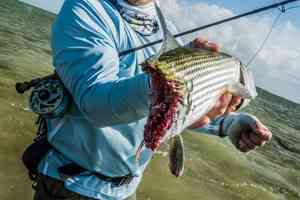


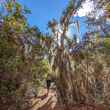
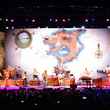
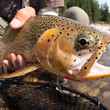
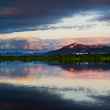



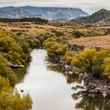
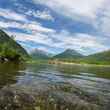
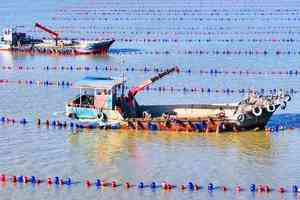
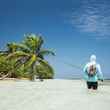

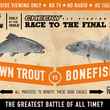
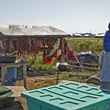



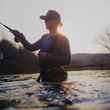
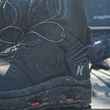



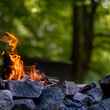
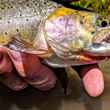
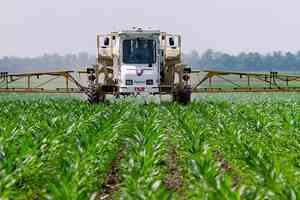
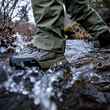
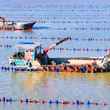
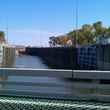
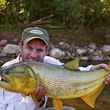
Comments
Bryan replied on Permalink
At least one forester I know has stated that the beetle kill issue is more closely connected to the fire suppression of the last 100+ years. We should have been letting them burn.
jjm replied on Permalink
and this means what exactly??? 98% of the world scientists agree but you let an Arbitrary fact regarding fire management from a forester provide your solitary guidance? Certainly justifiable to question forest service fire management BUT doesn't change the facts - climate is changing and we bare some responsibility. Life is pretty great on earth right now for those of us with first world problems - why not do every thing we can to keep it that way. We can innovate solutions that will expand the economy past fossil fuels. Saving the cold water for the trout.
Danilushka Ozera replied on Permalink
Yes there is consensus, but it doesn't matter because man cannot do enough to stop climate change.
The dirty secret climate change scientists and advocates don't want you to know:
even the best agreement they ever came up with, the Paris Accord, was voluntary, cheating is rampant, and it is ineffective globally.
If everyone met their voluntary commitments, the effect on global temperature would only be 0.3 degrees Celsius.
That number is smaller than the error term in their models so it could be 0: they have no idea.
And China, a well-known cheater nation that right now produces 3 times the pollution of the USA, got to increase coal pollution for the next 20 years while the USA had to reduce by 20%.
Paris was an empty, feel-good gesture that accomplished nothing. And that is the best they could do.
The bitter truth is climate change is inevitable because man cannot make the huge sacrifice going back to the 18th century it would require to really make a difference.
As much suffering, poverty, and starvation would result from that as climate change. Leonardo Di Caprio's private jet is a huge polluter and he doesn't care because the "little people' are the ones who need to sacrifice. If he won't, then many others won't either.
Of course, we should evolve our energy production and move to renewable sources as soon as possible, but we cannot do it fast and far enough to matter. We should spend an equal amount of resources and effort into adapting to the inevitable.
Bill Anderegg replied on Permalink
Danilushka, it's great that we agree that we need to do BOTH transitioning our energy production to renewable sources as soon as possible AND we need to work on adapting to the coming climate change. For our hunting and fishing heritage, both of these will be critical.
Unfortunately, your facts are simply wrong that we cannot accomplish anything to stop climate change. In the thousands of climate model simulations that have been run for the future, the single most important factor determining how much climate change occurs is what humans decide to do about greenhouse gas emissions.
No one has ever stated that the Paris Agreement is the silver bullet to "solve" climate change. It is a first step. Think of it as baiting the hook and making the first cast. Like all fishing trips, there's going to be a lot more to do than that (for example, future agreements and increases in ambition of greenhouse gas emissions reductions, etc). There never will be a silver bullet. Instead, we need a lot of "bronze buckshot" and the Paris Agreement is a good first start. We've got a lot left to do (and, luckily, it won't involve going back to the 18th century standard of living).
Rather than throwing up my hands at the inadequacy of the Paris Agreement, I am making the decision to keeping pushing forward on all fronts. Keep casting rods and re-loading buckshot folks.
Pages